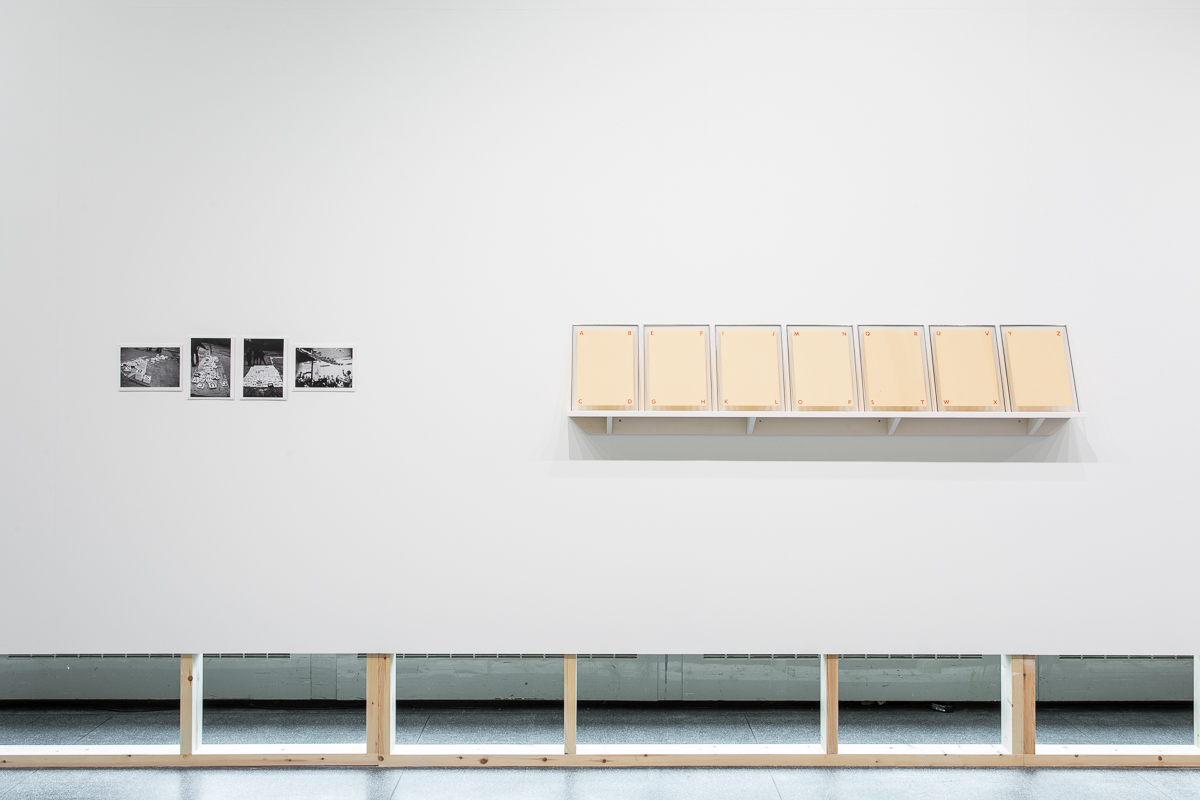Franz Erhard Walther
In a career spanning more than 50 years, Franz Erhard Walther has continually challenged conceptions of sculpture and performance; questioning received ideas about how we engage with art and insisting on the importance of the viewer to complete the work in their imagination. This exhibition brings together rarely seen works from across Walther’s practice including sculpture, drawing, typography and performance presenting a cross section of his prolific output.
A common thread across Walther’s practice is his ground breaking approach to engaging an audience through systems; using language, performance instruct instructions to display strategies, incorporating the viewer within the work itself. Central to this way of working is a physical engagement with the objects, from the activation of sculptures to the body’s relationship to a defined space, the viewer is invited to understand the Walther’s work through an engagement that is both physcial and intellectual. preceded many of the socially engaged and participatory practices seen in contemporary art today from Jeremy Deller and Tanya Brugera to Olafur Elissson and Francis Alys. through an engagement that is both physcial and intellectual.
In perhaps his best known work, the fifty eight part series First Work Set (1963- 69), Walther creates a poetic, visual dialogue between object and action and the systems through which these interactions are mediated. The First Work Set is a set of canvas sculptural objects or structures which the artist refers to as instruments – read to be worn and interacted with as part of demonstrations within the gallery spaces. Activations of a selection of these works will take place throughout the course of the exhibition.
Read More
Walther’s work has been shown widely internationally and is included in many public collections including Centre Pompidou Paris and MoMA New York. He participated in many seminal exhibitions of the 20th Century including Harald Szeemann’s When Attitudes Become Form (1969) and MoMA’s Spaces curated by Jennifer Licht in 1970. A contemporary of Gerhard Richter and Sigmar Polke, Walther also taught at the University of Fine Arts in Hamburg from 1970 – 2005, and is a continuing point of reference those who studied with him including John Bock, Martin Kippenberger and Rebecca Horn. His work however remains relatively under represented in the UK.
Walther continues to live and work in Fulda, where the Franz Erhard Walther Foundation is also based.
Read Less







